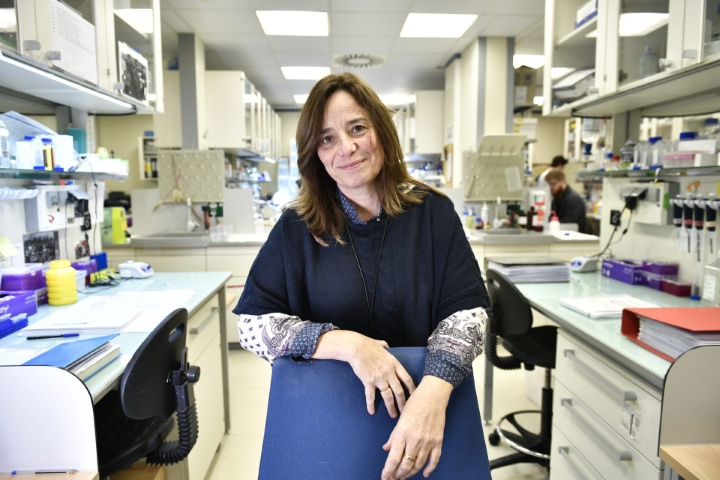Mitochondrial activity, a new therapeutic target for alcohol-induced liver disease

Researchers from CIC bioGUNE, CABIMER, CIBEREHD, CIBERDEM and other national and international centres have identified that mitochondrial activity associated with alteration of the MCJ protein may be a cause of liver failure due to alcohol intake.
RNA interference technology with MCJ has been shown to be highly effective in the treatment of alcoholic liver disease.
Current treatments are mainly based on alleviating the symptoms caused by the pathology.
Alcohol-related liver disease is one of the most common liver diseases worldwide and a major cause of morbidity and mortality.
The work has been published in the journal Hepatology.
 Researchers from CIC bioGUNE, CABIMER, CIBEREHD and CIBERDEM, together with other national and international centres, have identified that mitochondrial activity associated with alteration of the MCJ protein may be a cause of liver failure due to alcohol intake.
Researchers from CIC bioGUNE, CABIMER, CIBEREHD and CIBERDEM, together with other national and international centres, have identified that mitochondrial activity associated with alteration of the MCJ protein may be a cause of liver failure due to alcohol intake.
The RNA technology used in the study opens up new therapeutic opportunities in the field of personalised medicine. Current treatments are mainly based on alleviating the symptoms caused by the pathology in alcohol-induced liver damage patients. The research has been published in the journal Hepatology.
Alcohol-related liver disease is one of the most common liver diseases worldwide and a major cause of morbidity and mortality. Globally, alcohol use is the most common substance abuse disorder, with approximately 2 million people affected by alcohol-related liver disease, according to the World Health Organisation. Although often a preventable cause of death, alcoholic liver disease is responsible for up to 60-80% of liver-related mortality in Europe and is currently the leading indication for liver transplantation in the United States. It is a clinical syndrome that encompasses a broad spectrum of liver diseases, ranging from simple steatosis, steatohepatitis, liver fibrosis, cirrhosis and even hepatocellular carcinoma.
The work describes the development of an RNA interference linked to the regulation of the MCJ protein, which is found in mitochondria, the nerve centres of cellular respiration and energy production. This development represents a new therapeutic approach to the treatment of alcohol-induced disease. In fact, there is currently no treatment.
One of the first manifestations of alcohol-induced damage to hepatocytes is morphological and functional changes in the mitochondria. “In this study we set out to determine whether lack of MCJ would alleviate alcohol-induced liver injury and halt its progression by preventing mitochondrial dysfunction. Liver-specific silencing of MCJ using RNA interference proved to be hepatoprotective, as it reduced liver injury and facilitated liver regeneration,” explain Dr Malu Martínez Chantar and Dr Naroa Goikoetxea, researchers in the Liver Disease laboratory at CIC bioGUNE. Taken together, the results obtained with liver-specific silencing of MCJ support the possibility of targeting mitochondrial dysfunction as a therapeutic strategy to ameliorate alcohol-related liver disease and the systemic complications that accompany it.
The study, published in the prestigious journal Hepatology, and whose first author is Dr Naroa Goikoetxea, has been led by Dr Malu Martínez Chantar and Dr Franz Martin from the CIC bioGUNE and the Andalusian Centre for Molecular Biology and Regenerative Medicine (CABIMER), respectively, and has been developed in close collaboration with a multidisciplinary consortium that includes national and international researchers from hospitals and basic and translational research centres.




